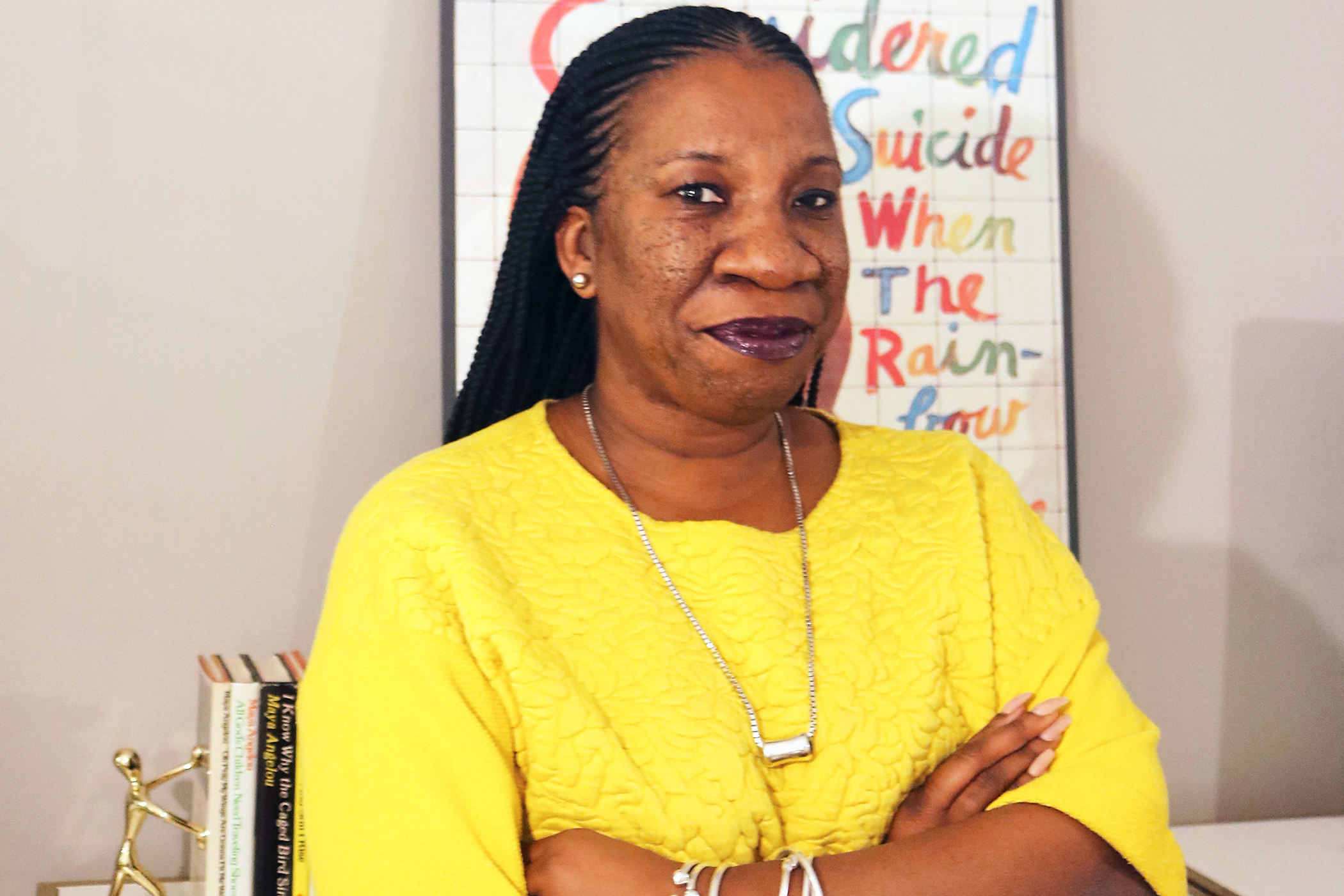This article was originally published on MSUToday
#MeToo founder Tarana Burke will speak at Michigan State University at 7:30 p.m. April 19 in Wharton Center’s Cobb Great Hall as part of the Transformative Justice Speaker Series.
Burke is an activist and community organizer best known for creating “Me Too” in 2006 to promote “empowerment through empathy” and healing for survivors of sexual abuse, particularly in underserved communities.
She will speak about the origins of the #MeToo movement and talk candidly about the pervasiveness of sexual violence in American culture, said Xhercis Méndez, assistant professor in the Department of Philosophy and the African American and African Studies Program. Méndez created the Transformative Justice Speaker Series in 2016 to explore how universities can build safer and more supportive environments for marginalized students, faculty and staff.
Burke’s visit is meant to inspire and motivate those directly and indirectly affected by sexual violence, she said. At the same time, Burke’s discussion lays the foundation for transforming the conditions, such as racism, ableism, homophobia, transphobia and misogyny, that enable sexual assault.
“A long-term commitment to transforming the culture at MSU is much needed and Tarana Burke has been invited to join the greater MSU community to discuss and envision the long-term changes we want to see,” Méndez said.
#MeToo has since developed into a worldwide movement, and Time Magazine named Burke, one of a group of prominent activists dubbed “The Silence Breakers,” as Time’s Person of the Year for 2017.
Burke is senior director at Girls for Gender Equity, a Brooklyn, New York-based intergenerational nonprofit organization that works to end gender-based violence, where girls and women of color live and learn. She also organizes intersectional workshops to help improve the policies and responses to sexual harm at schools, workplaces and places of worship.
Transformative justice is an engaged philosophy and practice that seeks to actively respond to harm within communities while recognizing how violence is rooted in other systems of oppression, Méndez said. As a result, the series at MSU has focused on developing an intersectional and transformative justice approach to campus sexual assault that centers on survivors and their needs.
Its goal is to seek out and create accountability toolkits and models for universities that bridge individual responsibility to community responsibility, cultivate a sense of trust and safety, build and strengthen community relations and center collective healing and transformation, she added.
Tickets to the public event are free and will be distributed on a first-come, first-serve basis at the Wharton Center Box Office. Each person is limited to two tickets.
“Hearing from Ms. Burke during this time of needed culture change on our campus community is important,” MSU Interim President John Engler said. “We look forward to her presentation, and I am confident there are things she will share that we can all learn from, given her advocacy work.”
For accessibility information, contact the Resource Center for Persons with Disabilities at (517) 884-7273.
Burke’s talk is sponsored by College of Arts and Letters; College of Communication Arts and Sciences; College of Education; College of Music; College of Social Science; Honors College; and University Outreach and Engagement.
Her visit was also made possible by the support of the co-sponsors of the Transformative Justice Speaker Series. Those co-sponsors include the College of Arts and Letters; College of Natural Science; Department of Philosophy; African American and African Studies; Lyman Briggs College; Decolonial Feminist Collective; American Indian and Indigenous Studies; Chicano/Latino Studies; Center for Gender in Global Context; Peace and Justice Studies; the Timnick Chair in the Humanities; and the MSU Womxn of Color Initiatives.
For more information on the event, visit the Wharton Center for Performing Arts website.
